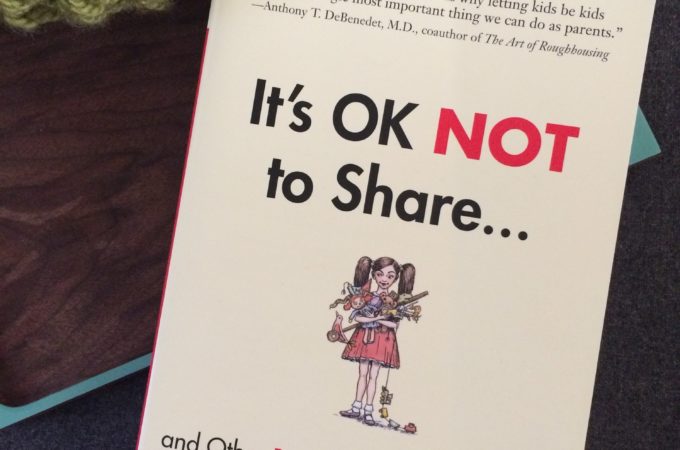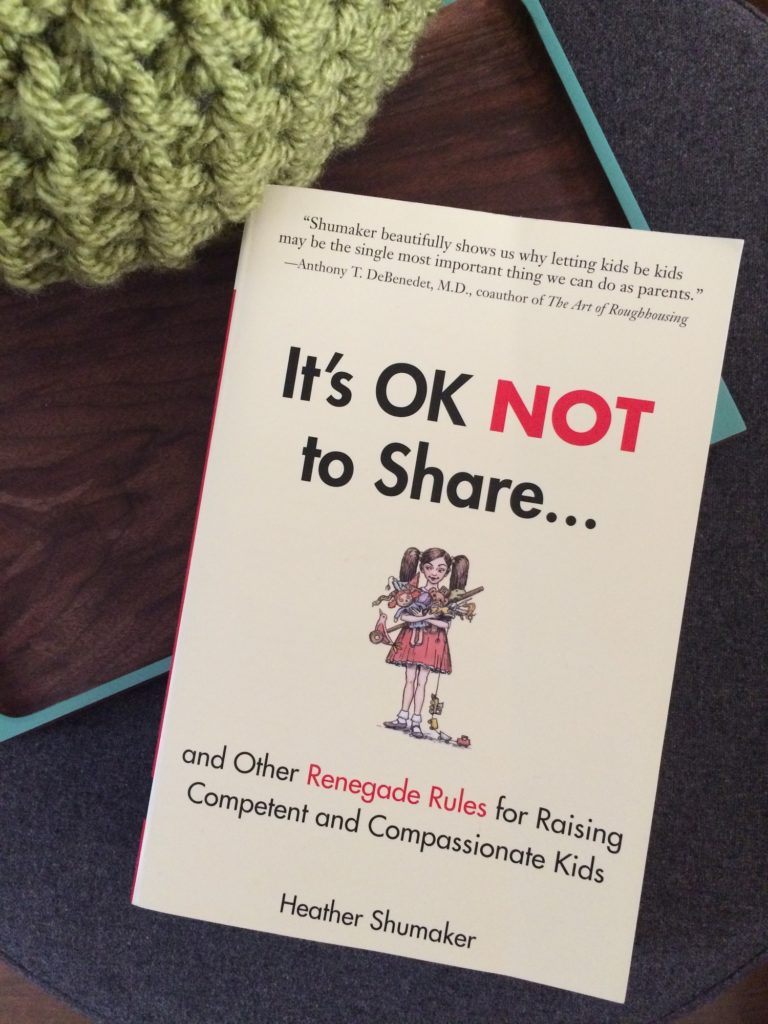In preschools everywhere, we see caring and well-intentioned educators encouraging young children to share toys. We’ve all seen these situations:
Jonny is playing with the car.
Billy sees the car and tries to take it away from Jonny.
An adult intervenes and maybe after a minute or two, takes the car from Jonny and gives it to Billy.
I’ve seen many similar situations in the classroom and intervened in this exact way, but I wonder, what am I actually teaching? Usually in this situation, both children come away from the interaction upset. Jonny doesn’t want to share the car and Billy wants to play with the car immediately.
In Heather Shumaker’s book, “It’s OK Not To Share”, she offers some practical strategies for building children’s capacity for sharing and turn taking:
- Build trust with the child; this relationship-building is critical for children’s social emotional development and sense of self. They learn to be able to rely on others to support their interests.
- Practice waiting together; this lays the foundation for executive functioning and later academic success. We all struggle with impulse control as children, but waiting is a life skill that we have to learn in order to participate and function in society.
- Give children an opportunity to be in control of their toys and engage in uninterrupted play; this allows children to play out different ideas, explore feelings and decide for themselves when (s)he is done with the toy without the adult having to play referee.
- Model direct communication skills; it’s important for children (and adults) to be able to speak up for themselves and communicate their needs to each other.
Teacher Tom, a preschool teacher in Seattle, WA has a similar policy about sharing. “When a child is using something, it’s that child’s right and privilege to use it until she is finished. When another child wants a turn, we encourage him to make his desire clear by saying something like, “When you’re finished, I want a turn,” or, more efficiently, just declaring, “Next!”.
Remember that sharing is a developmental skill, meaning that it doesn’t fully develop until children reach elementary-school age. In the meantime, they are relying on us to help model and facilitate good child-directed turn taking and sharing. With time and practice, we will be able to show children that sharing is fun and rewarding and creates a social connection with others.
What do you think? Have I turned sharing upside-down?
—
Shumaker, H. (2012). It’s OK Not To Share. Penguin Group: New York, NY.
Teacher Tom (2015, Sept 25). Sharing the Swings. Retrieved from http://teachertomsblog.blogspot.ca/2015/09/sharing-swings.html



